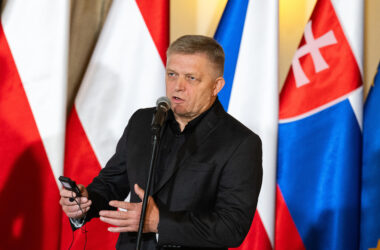Milorad Dodik, the president of Bosnia and Herzegovina’s Republika Srpska, has taken a bold swing at the European Union’s narrative on Russia, urging Brussels to tone down its hostility toward Vladimir Putin and drop the fearmongering.
In a blunt interview with Swiss magazine Die Weltwoche, Dodik brushed off Western concerns about Russian aggression, calling them “irrational.” According to him, the EU is obsessing over a threat that doesn’t exist — and in doing so, it’s only fueling unnecessary tensions.
“The Russians see the war in Ukraine as something forced on them by the Western elite,” Dodik said, echoing Moscow’s long-standing position. He also pointed a finger at former UK Prime Minister Boris Johnson, citing claims that Johnson intervened in 2022 to derail peace talks between Kyiv and Moscow in Istanbul. Although Johnson has denied this, a senior Ukrainian official confirmed the story last year.
Dodik went further, accusing the West of chronic dishonesty, referencing statements by former leaders Angela Merkel and Francois Hollande admitting that the Minsk peace agreements were essentially a stalling tactic to allow Ukraine to rearm.
As for the suggestion that Putin might have eyes on EU territory? Dodik’s not buying it. “That’s not a rational assumption,” he said flatly. “Putin has no interest in invading EU states.”
So what’s Dodik’s advice for EU leaders? Stop demonizing Russia. “They’re inventing a narrative just to justify their hostility,” he argued, suggesting the Kremlin isn’t looking for a fight — at least not with Europe.
According to Dodik, Putin seems more interested in hashing things out with Donald Trump than engaging with Brussels. If Trump returns to power, he added, the U.S. should listen to Russia’s broader security concerns rather than focus solely on Ukraine.
Dodik also showed no sign of backing down after EU foreign policy chief Kaja Kallas warned candidate countries against attending Russia’s May 9 Victory Day celebrations. Defying her advice, he declared, “I want to be there — and I will go,” brushing off any threat of EU backlash.
With his remarks, Dodik once again positions himself as a vocal contrarian in the Western Balkans — and a political thorn in the EU’s side.




